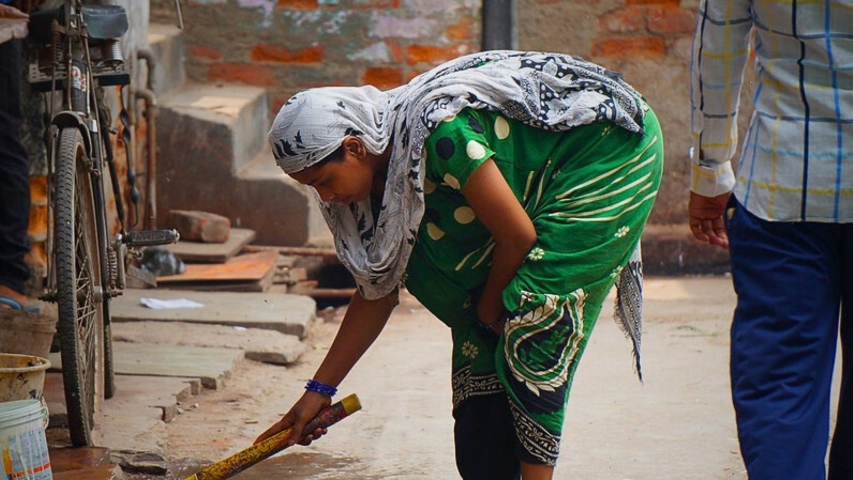
TRENDING: THE GREAT REDEVELOPMENT BONANZA & FASCISM
by Sharad Raj November 15 2024, 12:00 am Estimated Reading Time: 5 mins, 27 secsMumbai’s redevelopment and how urban transformation drives class divides, social segregation, and fascist tendencies, widening inequalities in India’s evolving economic and cultural landscape. Sharad Raj explores…
Mumbai’s redevelopment is transforming the cityscape, but with it comes an escalating class divide and rising social segregation. As redevelopment projects promise a modernized lifestyle, they also widen the gap between affluent residents and the working class, sparking concerns of "othering" and discrimination. This urban overhaul, fuelled by middle-class aspirations and capitalist interests, not only reflects India's class disparities but risks becoming a breeding ground for deeper social divisions across caste, gender, and religion, as new housing complexes promote exclusivity over inclusivity. Mumbai’s changing landscape poses urgent questions about the costs of urban development in India’s quest for progress.
The Redevelopment Boom: Aspirations and Inequalities
It was Travis Bickle in Martin Scorsese’s Taxi Driver (1976), whose war-scarred mind turns to vigilantism and a fixation on “cleansing” the streets of their garbage, whores (there is a reason this word is used; I request the editor not to replace it with a more acceptable term), beggars, pimps, and the homeless, until he finally goes on a killing spree. We are all familiar with Hollywood’s obsession with “family entertainers” that position a middle-class family as the central unit deserving the best of the “American Dream.” Similarly, cinema and web series in post-liberalization India frequently cater to this “family first” ideology.
“Tabbar,” a 2021 web series, takes this obsession with family to an extreme, pushing all boundaries of objective integrity. In the early 21st century, a Mayor of New York, following in Travis Bickle's footsteps, “cleaned” the streets, clearing Times Square of the poor and the miserable. Such self-righteous actions—whether it’s G. R. Khairnar, the Deputy Municipal Commissioner of Mumbai, cleaning Kamathipura (Mumbai’s red-light district); Arvind Kejriwal depoliticizing his politics by focusing on the moral issue of corruption; or the New York Mayor—all seem to cater to the middle class’s split personality, oscillating between underground debauchery and above-ground familial harmony.
This narrative revolves around us, the great Indian middle class, borrowing the title of former diplomat Pavan K. Varma’s pivotal book on the rise of India’s middle class in the 20th century. Their dreams, desires, and euphoria seem boundless. From flyovers and expressways to multiplexes and shopping malls, everything acts as an aphrodisiac, endlessly rejuvenating them.

Urban Upgrades and the Price of Social Segregation
Mumbai, formerly Bombay, is now overflowing. The sewage systems, telephone lines, roads, water pipes, and buildings have all aged, either dead or dying. Redevelopment efforts, which likely began over two decades ago, started by first eradicating the slums visible from our balconies—slums that came into existence for the very buildings whose occupants now wanted them gone. This served everyone’s interests: the middle class, the builders, and the political class. I remember a 10-year-old son of a school friend, visiting Mumbai alone for the first time from abroad, asking me why there was so much construction amid so much poverty. I was speechless. Many of you must be familiar with the construction epidemic in Pune, Maharashtra, and NOIDA, Uttar Pradesh, with common knowledge about whose money fuels which builder’s projects, and why.
The entire redevelopment model centres around the upwardly mobile middle class, with their jumbo cars honking incessantly, often left parked in the middle of the road, with daggers drawn if you express displeasure. For years, some have parked their cars right in front of gates to buildings and complexes. Mumbai no longer listens to its watchmen or bus conductors; it reeks of entitlement, a kind only money can buy, devoid of cultural substance. And isn’t that reflected in whom we vote for?
It is these individuals who demand cleanliness in their neighbourhoods and housing societies, freedom from both garbage and from the class they consider, and often treat, as even worse than garbage. The people who slog and clean our houses’ filth need a gate pass to enter and exit our buildings. The delivery runners from Zomato and Swiggy risk their lives so our children can get their junk food, hot and fresh. The list is endless: janitors, washermen, coconut sellers, newspaper delivery workers, flower delivery boys, milkmen, masseurs, beauticians, and many more. We cannot live without them, but the class divide must be loud and clear, ensuring they feel small, so they don’t expect even a semblance of respect, let alone respectability.

From Class Divides to Fascism: A New Breed of 'Othering'
And this is what the latest Mumbai redevelopment bonanza, now in full swing, promises: a lifestyle that many aspire to but cannot afford. We live in housing apartments that builders are eyeing for FSI (Floor Space Index). For us, redevelopment means a lifestyle upgrade in a luxury tower or apartment complex far beyond our means. Our upgrade includes perks we had only imagined—amenities we may not need or afford. But the most significant perk is segregation. The builder promises a new life in which our driver uses a separate elevator, our masseuse no longer has access to our home but to a spa-for-hire in the complex, and the food delivery boys have a separate entrance and parking area for their two-wheeler scooters. “They” will not “mingle” with us. Our new life will deepen the class divide, and we were raised believing that gap should be bridged! The people we don’t hire without police verification, those we blamed for spreading COVID, whom we laid off or stopped paying during the lockdown, will now be further distanced. Wages paid to staff were the first cost cut, not because the expense was high, but because it went to those far below us in the class hierarchy, hence dispensable. They will continue to serve us, further demeaned, far more than their lives already demean them. Segregation, segregation, segregation.
This naturally lends itself to “othering.” What begins with class will extend to caste, gender, and religion. These luxury complexes will then become breeding grounds for discrimination and fascism, as the great capitalist conquest continues. Sadly, I am part of it, too. But I am not alone; Travis Bickle is no longer a lone figure “cleaning” New York, but an entire system.





-173X130.jpg)
-173X130.jpg)
-173X130.jpg)

-173X130.jpg)
-173X130.jpg)
-173X130.jpg)